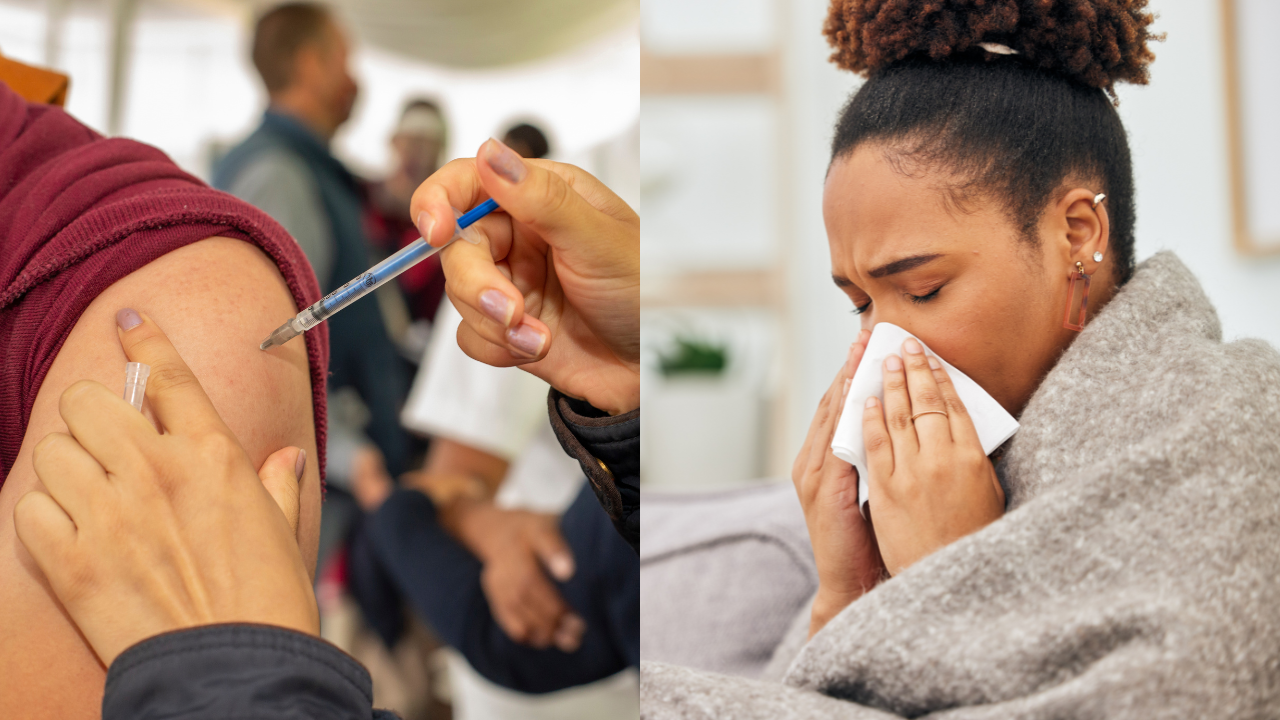-
news
-
Health
Winter influenza risk: Experts explain why cancer and HIV patients are especially vulnerable to flu
The winter months are ideal for influenza outbreaks due to increased indoor activities, poor ventilation, and dry air. Combined with air pollution in urban areas, this increases the risk of flu transmission, especially in vulnerable populations such as patients undergoing chemotherapy and HIV-infected patients. Experts share preventive measures including vaccination and hygiene practices.

Image – Canva
During winter, people usually spend more time indoors due to cold temperatures. This leads to close contact and increases the chance of spread influenza virusAdditionally, central heating also dries out the air, a condition that dries out the nasal lining and reduces its ability to trap or repel pathogens.
Indoor ventilation during winter is usually restricted as a way to maximize heat retention while reducing fresh air circulation, resulting in increased concentrations of viral pathogens in the environment. It has been reported that influenza viruses can survive for long periods of time in cold and dry conditions, thus remaining highly infectious on any surface or environment for a considerable period of time.
All these factors create an ideal environment for the spread Influenza among people during indoor gatheringsResulting in more outbreaks during the winter months. We speak to an expert to provide clear information on preventive measures, side effects of vaccination and more.
Poor air quality increased in urban areas winter influenza risk
Influenza is more likely to spread in a heavily populated urban area, especially during winter when air quality is poor. According to P Venkata Krishnan, senior consultant in internal medicine at Artemis Hospital, pollution In the form of particulate matter and nitrogen dioxide, which are found in abundance in urban environments weakened respiratory systemDue to which there is a risk of infection like influenza.
This cooler weather can also lead to temperature changes that trap pollutants closer to the ground, worsening air quality. “This impaired mucociliary function compromises the respiratory system’s natural defense against most pathogens, making those patients more easily attacked by flu viruses,” he says. He said high population density also increases exposure risk, as people gather frequently. Public transportation and crowded indoor spaces facilitate the spread of influenza in urban environments.
Possible complications of influenza Chemotherapy and HIV patients
People who are undergoing chemotherapy or suffer from HIV have a weakened immune system, making them more susceptible to severe influenza complications,
“Chemotherapy suppresses the body’s immunity which does not allow the organism to fight the treatments used to remove the cancer within it, while HIV targets immune cells and reduces all immune . Flu problems result in complications like pneumonia, bronchitis. sinus infectionetc., or worsening serious chronic conditions like asthma or heart disease,” says Dr Krishnan.
Recovery, he says, takes a long time and weakened immunity makes patients vulnerable to any secondary bacterial infections. “Flu symptoms such as fever and swelling can put a strain on an already weakened immune system, causing life-threatening complications. For these people, early antiviral treatment and vaccination are essential preventive steps,” he added.
Preventive measures for health care workers and caregivers to avoid influenza
Health care workers and doctors are at greatest risk of contracting influenza viruses due to close contact with infected people. “They should receive annual vaccination against influenza to protect against the most widely spread influenza viruses. Maintaining hygiene to avoid germs is provided through hand washing using soap and water. Wearing personal protective equipment like masks and gloves will reduce direct transmission of respiratory droplets, says Dr Krishnan.
Additionally, frequent disinfection of patient care surfaces is also greatly helpful in reducing indirect transmission. Consideration should also be given to the ventilation of health care settings and reducing overcrowding in waiting areas. All these measures will significantly reduce the risk of influenza among healthcare workers.
flu vaccine side effects and when to seek medical help
“Most people will experience mild, short-term side effects after flu vaccination. These include pain, redness, or swelling at the injection site; low-grade fever; Tiredness; muscle pain; Headache; And mild chills,” the expert says.
These are all signs that the body is building defenses and no medical care is needed. A more serious effect of this allergic reaction may be that the patient begins to experience hives or tachycardia along with breathing problems or facial swelling. One may need to consult their doctor if they experience problems like high fever, persistent weakness or neurological symptoms. Although such cases are very rare, immediate medical attention is the only way to safely deal with unexpected complications.
Get the latest news live on Times Now with breaking news and top headlines from around the world.


